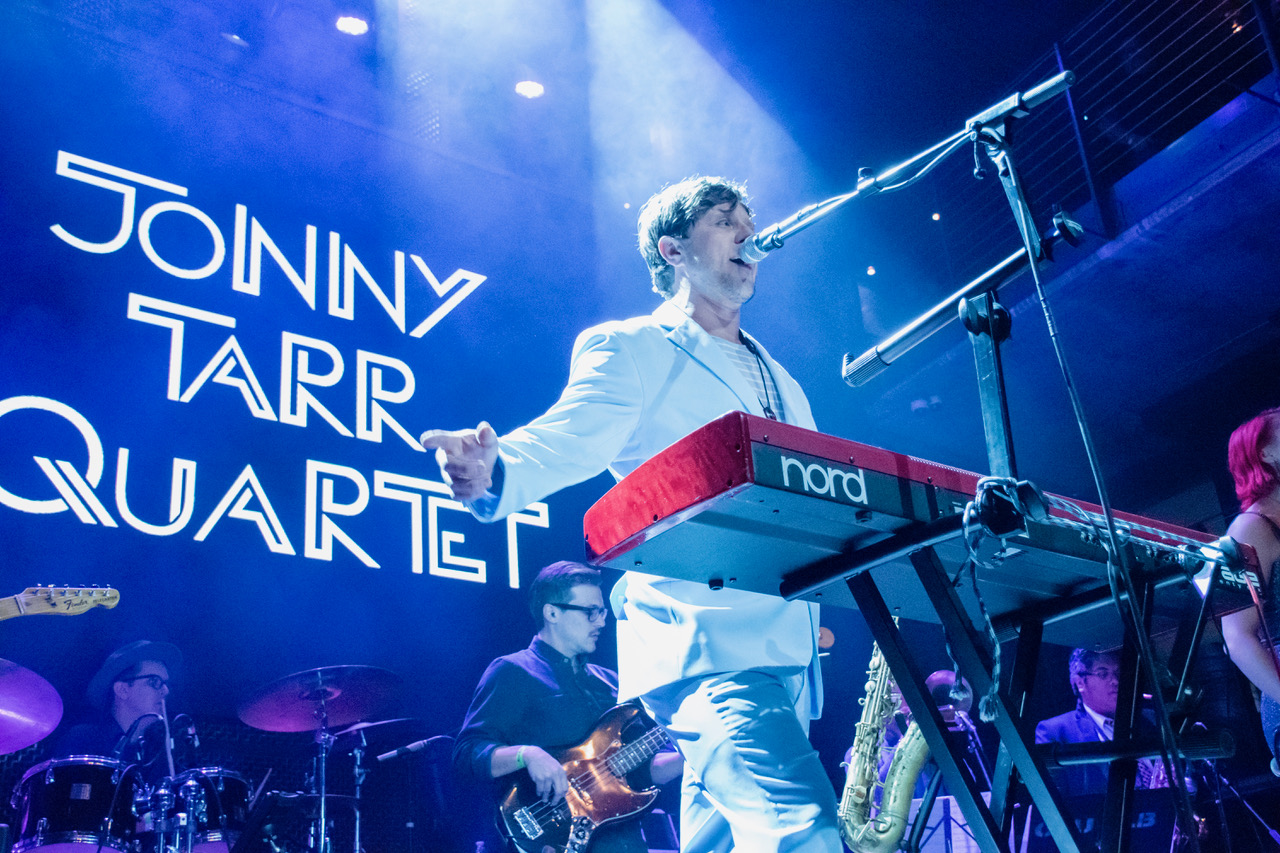An Interview with Attorney Haley McCullough from Metro-Goldwyn-Mayer Studios Inc by Brian WitkinMay 2022
THE BASICS
Depending on the scope and scale of the event there is a wide range of issues covered by live performance agreements. However, there are certain basic terms nearly all live performance agreements typically include.
Who’s who

Jonny Tarr at the Music Box.
A live performance agreement identifies the parties to the agreement, making it clear who the individuals or entities entering into the agreement together are and how to contact them.
This means including both the performer’s legal name and their professional name (also known as “P/K/A,” short for “professionally known as”) if they have an alias. Similarly, the legal name of the promoter and any DBA’s (doing business as) should also be included. It’s a good idea to include at least one physical mailing address for both the promoter and performer, so notice can be mailed if an issue arises.
Furthermore, if there is a group of performers being hired (i.e., a band), the expectation is usually that all the members appear to perform as part of the group. So, all the band members should all be listed on the agreement.
Location date and time
A live performance agreement includes the specific time, date, and location of the performance. Specificity is very important here, so be sure to include a physical mailing address of the location (not just a venue name for example), include the time of day (AM vs. PM), time zone etc. Nobody benefits from a performer going to the wrong venue or arriving at the incorrect time.
Artist’s live performance details
The specifics of the performance itself are often covered in performance agreements as well. For example, who provides the sound system and how long will the actual performance last? Will the artist get any breaks, and if so, when? What songs will the performer play? As a performer, you want to make sure the agreement reflects what you expect to be performing and that you are comfortable with the duration. For example, if you perform original compositions, the agreement should specify that you will be performing original compositions. On the other hand, if you’re hiring the performer to play classic hits from the ’80s for two hours, that should be written into the agreement as well.
Facilities
Typically, the entity hiring the performer is responsible for providing all the necessary requirements for the musician to conduct their performance. For example, making sure the venue is adequately heated and/or cooled, well lighted (or shaded if outdoors), with access to power, dressing rooms, and ample space to store gear and road cases when not in use. Access to the facility itself, with enough time for setup, is another important consideration. So, a performance agreement should include a “load in time” to make sure everyone is on the same page for setup.
Compensation
Performance agreements also cover how much the performer gets paid and how. There’s a wide range of ways performers get paid, below are some common payment structures:
Similarly, a buy on is when a performer pays an agent or another preforming artist to “buy on” to a pre-existing performance or tour. In this case, the performer doesn’t make anything from the performance itself, instead they in theory can benefit from performing with the associated act.
Methods where the artist comes out of pocket up front to perform are typically undesirable however there are sometimes reasons these situations can be justified.
ADDITIONAL CONSIDERATIONS
Promotion
Who is responsible for promotional activities relating to the performance? Is the concert a public ticketed event? Does the promoter expect the artist to promote the show and draw a crowd? Who pays for advertisements? These are just some issues relating to promotion.
Insurance Licenses and Permits
Who is responsible for obtaining any use permits, licenses, or insurance required for the performance under local laws and regulations?
Broadcast and other performance rights
Will the performance be streamed online, recorded, or broadcast via cable networks? If so, what are the particulars and who owns the rights to the underlying master recordings, video etc.
CONCLUSION
There’s obviously a lot to think about when contemplating a live performance agreement and the issues above just scratch the surface, so consider hiring a music attorney to help you draft your agreement. At minimum, document what you’ve agreed to in writing: email threads or text messages are far better than just an oral agreement because there’s a written record in place.
About Brian Witkin
Brian Witkin runs a boutique entertainment law firm in San Diego, California. He is also an award-winning musician, producer, and CEO of Pacific Records. Brian has spent nearly two decades in the record business and is a Grammy® Voting Member of the Recording Academy. Brian’s father, Joe Witkin, was the original keyboard player of Sha Na Na, who performed at the iconic Woodstock Festival in 1969.
Note: This article is for general informational purposes only and does not establish an attorney-client relationship. The information is deemed reliable but not guaranteed. Every situation is different, and the general information contained in this article may not apply to your specific situation. The author and publisher assume no responsibility for actions taken based upon the contents of this article. Seek the advice of counsel for your specific situation.
© Law Offices of Brian A. Witkin 2023.

